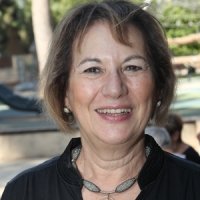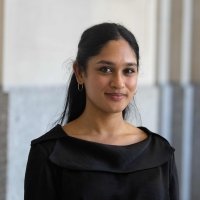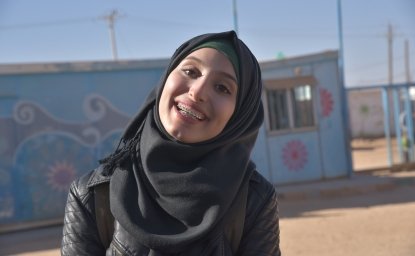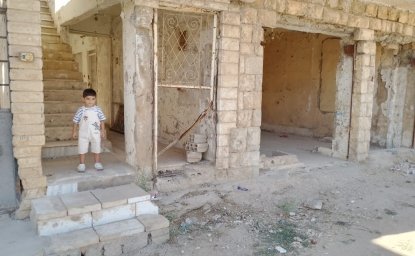Enheduanna: Can you describe the number of femicides in Israel over the past year? Are they occurring in specific demographics, regions or age groups?
Prof. Shalva Weil: There are two types of femicide. In the past, I always defined femicide as the killing of women because of their gender, and I've documented this for several years. In fact, I began documenting it in 2008. These were murders of women by partners or family members because they were women. This year in Israel, so far there were 20 of these types of murders, and a half of them were amongst the Israeli Arab population and other minorities, including Bedouin and Druze. However, Israeli Arabs only constitute 21% of the general population, so they are disproportionately represented.
For the first time this year, I started counting how many women were actually murdered all together in crime, excluding terrorism and war. Until now, I left that to the police. This year, up to November 25 (the Day for the Elimination of Violence Against Women), we have a further 17 women, who were murdered in various ‘underworld’ attacks. I began to think that these women were being murdered, possibly, because they were considered the property of males, and so there must be a link between femicide and these ‘underworld’ gangs.
In Israel, and I should really point this out, the rates of femicide are incredibly low and my statistics are really accurate…the rate is less than two femicides a month now.
You spoke about your theory that women are being killed because they're being perceived and or treated as the property of men in this specifically ‘underworld’ setting. Are there other key drivers of femicide and how would you characterize them? Are they sociocultural drivers? Are there legal drivers? Moreover, within this, are there certain drivers that are exacerbating femicide?
The major reason for femicide—when a woman is killed because she's a woman—is the emotional connection between other males and women. So, the majority of femicides are perpetrated by husbands, legally married, partners, or other family members, even brothers. So, this is the vast majority of femicides in Israel, both amongst the Jewish population and amongst the Arab population.
This year, we had two cases of women who were neither Arab nor Jewish; they had foreign citizenship. One had come from Moldova and one from another place in the former USSR. After a long while, it transpired that they were actually working as prostitutes providing sexual services for two separate men who murdered them. But this is, in Israel, generally unusual.
Moving from drivers to remedies. How effective are laws at deterring femicide, if at all? And on the flip side of that, how effective are they at providing justice in cases of femicide?
We'll begin first with the government. The government really isn't very interested in femicide and really doesn't have much to do with it. The people who are promoting combating femicide are NGOs and feminist organizations. The legal system will charge somebody who admits that he's murdered his wife according to the laws of the country.
This is the same globally. It's pretty much the same in every country that femicide is very low on the global order of priorities. There are very few countries in the world who have laws specifically on femicide. There are laws about homicide, which sometimes includes women, but actually specifically on femicide, there are very few. Croatia has recently introduced a new law on femicide and so has Malta, but they're very weak. Going back to Israel, there's no specific law on femicide. There are laws on murder, whether it was intended in advance or unplanned.
The legal system will enforce the law if the perpetrator admits to it or if they are found guilty. But I would argue, and this is my next challenge, that we ought to have a proper law actually naming femicide as a special human rights crime. There are several countries in the world who, like me, are fighting for this, but I think it will take quite a long time.
In your report, you mentioned that in the case of Israel, there is a gap in the amount of femicides solved and charged. What accounts for the gap?
These crimes take a very long time to solve. Forty-five percent refers to the times they were trying to solve the crime. Of course, it should be 100%, but sometimes you have a solution to a crime many years afterward.
There's a very interesting case that happened recently in Israel where they discovered the DNA of a guy who had murdered a woman about 40 years ago. Because genetics and DNA testing have so improved in the last few years, they have now found him guilty. Sometimes it takes a very long time to find who the perpetrator is or to prove that they are the perpetrator. He was previously accused, but they couldn't prove it. Now they can prove it. It’s an incredible story.
The important thing that I wrote in my report was that the police’s attempts to solve the crimes of femicide in the Arab sector were much lower rates than in the Jewish sector. In other words, police are frightened, or don't want to go into the Arab sector and investigate femicides.
There is a place in the town of Ramla, which is in the center of Israel, where they are warring Bedouin tribes that have been warring for decades. Every so often, they shoot women because of modesty—the so-called honor killings—and blood vengeance. The police are frightened to go in. This year, people have been accusing the police: “you don't solve the crimes in the Arab sector,” which is absolutely true. They don't even try to.
And then going a little bit back, you were saying that you're pushing for a law, specifically on femicide. I'd like to talk a little bit about your organization and the work that you're doing. What is your theory of change and what activities are you currently working on? Since the organization’s founding, has there been impact?
We have to go back to 2008, when I started investigating femicide. My regular research, as an anthropologist, was studying marginal Jewish ethnic groups. My major interest was Indian Jews and Ethiopian Jews. In 2008, one third of all femicide cases in Israel were of Ethiopian women, yet these women constituted 0.5% of the population. So, something was really wrong. The Ministry of Immigration and Absorption commissioned research from me. They asked if I could study the subject and produce a report on Ethiopian Jewish women’s femicide. I was very involved as an anthropologist with this community. I knew lots of people, and I discovered many more cases than were reported in the newspapers.
Today, in the reporting of these femicides, the newspapers mention the names of the people who were murdered. Whereas in those days, they usually didn't bother even to mention that it was a person or a name. This is the same, by the way, in the United States.
After about a year, I gave in the report on the Ethiopian Jewish women whom I had discovered had been murdered. The ministry was furious. They paid for it, but they said, “no, we don't want this report.” There were too many cases, and they censored it. Now, there's nothing better for research than to be censored—that was all over the headlines of the newspapers. They really didn't care about the Ethiopian women being murdered, I think, and they actually censored it. I had to go to lawyers at the Hebrew University, and the lawyers suggested that I shouldn't publish the report within Israel, but I was perfectly, eligible to report it outside Israel.
In 2010–2011, I went to Geneva to the European Sociological Association, and I called the phenomenon femicide. Now, I'm mentioning this because at the time, the murder of women was called “wife murder,” based on the assumption that everybody was married. Very few people, if any, called it femicide.
The term was not invented by me, but in the 1970s. But I revived it, and I called it femicide in Israel. My colleagues, not from Israel, said, “This is brilliant. There are thousands of articles on domestic violence, but we never thought about the extreme end of domestic violence, which is femicide. Why don't you present to the European Union?” That's how I became the chair of what they called Femicides Across Europe, COST in the European Union.
My impact was that I insisted it be called femicide. So, I invited a few professors who had already been studying subject, and I said, “Look, we're going to call this femicide across Europe.” And they said, “No, you can't call it femicide, it's ‘female homicide.’” The Dobashs, who are excellent researchers from the University of Edinburgh, a husband-and-wife team, they produced a book the next year called When Men Murder Women. They were very angry that I wanted the word femicide as a special form of murder. In the end, I won out.
And so, in terms of impact today, people know the word—not everybody, not in the street—but the word femicide is totally accepted. People are looking at the murder of women as if it's a different form of murder, for a different motivation and reason.
The end product of the COST project was that I set up the European Observatory on Femicide in Malta, in conjunction with the president of Malta. Today, that European Observatory on Femicide is run in Germany in conjunction with Cyprus. Then, I set up an observatory in Georgia. Similarly, I set one up in Macedonia. I said to myself, “but look, there's none in Israel, and I reside there.” Nobody was really interested in Israel, so in the end, I set it up.
I received a very small grant from a person I knew, who is anonymous, to pay for a student. I worked voluntarily at the beginning. We did great work, and we now have the Israel Observatory on Femicide, which monitors, femicide both quantitatively and qualitatively. We're also interested in the stories; what really happened behind the scenes.
The Israel Observatory on Femicide (IOF) was established in 2020 by Prof. Shalva Weil at the Hebrew University of Jerusalem. The purpose of the Observatory is to collect and monitor data and narratives about the murder of women, both quantitative and qualitative, and provide means for building an updating body of knowledge to eradicate the phenomenon.
This transcript has been edited for clarity.
The views represented in this piece are those of the author and do not express the official position of the Wilson Center.











